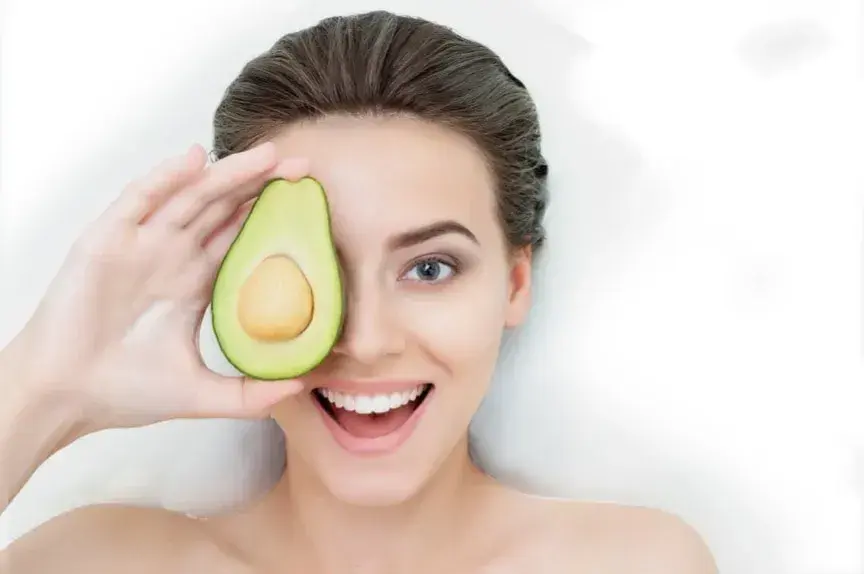
/assets/images/provider/photos/2580077.jpg)
We all know that the food we eat has a direct effect on our well-being. Junk food makes us gain weight and feel sluggish while healthy food boosts our energy without weighing us down. But did you know that your diet can make a difference for your skin? A radiant, age-defying complexion could be yours by adding these skin-glowing foods to your regular diet.
Good Foods for Skin
Fatty fish: Fatty fish, such as salmon, are full of omega-3 fatty acids. Omega-3 fats are vital in keeping the skin soft, elastic and well-moisturized. Fish oil supplements may be taken to ensure adequate Omega-3 intake. These fats reduce the inflammation responsible for acne and redness. Fatty fish also contain Vitamin E, an essential antioxidant in protecting the skin.
Avocados: Avocados are full of a healthy kind of fat that can do wonders for your skin. These fats are similar to omega-3 fats in that they both keep the skin elastic and moisturized. The fats found in avocados may work to protect the skin from UV damage and the acceleration of aging that comes along with it. They contain both Vitamin E and Vitamin C, two powerful antioxidants. Vitamin C is a crucial ingredient for building collagen, the main protein responsible for maintaining skin health.
Eggs: Eggs are excellent sources for softening, strengthening and hydrating the skin. They are full of amino acids that help to generate new skin cells. They can also help in preventing UV damage and aging, dark spots and wrinkles.
Walnuts: Walnuts are another great source of fatty acids. They contain more omega-3 and omega-6 fatty acids than any other nut. While too much omega-6 can lead to inflammation, walnuts contain a healthy ratio of both to prevent that type of adverse effect. They are also a great source of zinc, a vital component in the function of skin as a protective layer. Zinc will promote healing and help the body to fight bacteria and inflammation.
Foods high in beta-carotene (a specific plant pigment): This includes sweet potatoes, carrots, oranges, broccoli and spinach. The human body converts beta-carotene into Vitamin A, making it an excellent source of antioxidants. Antioxidants neutralize skin-damaging free radicals and work to keep the body in a healthy state.
Tomatoes: Tomatoes contain beta-carotene and are high in Vitamin C. Tomatoes are full of all the other significant carotenoids (plant pigments) as well. Together, they may help prevent sun damage and wrinkling.
Soy: Soy is rich in a specific plant compound that can reduce fine lines and boost skin elasticity. It may help prevent skin dryness and increase collagen production.
Dark chocolate: Dark chocolate is excellent for your skin in moderation. It can allow your skin to look fuller and more hydrated. Chocolate with at least 70% cocoa is a great source of antioxidants as well. Dark chocolate contains less added sugar than other types of chocolate, adding to its amazing benefits.
Green tea: Green tea is full of antioxidants, but it also helps to reduce redness and inflammation. It can lead to softer, more dewy looking skin with a boost of elasticity.
Red wine: Red wine contains a compound that may help reduce the signs of aging. It may also assist in slowing the production of free radicals, skin-damaging molecules. However, red wine contains alcohol, which can be skin-damaging itself if consumed in excess. Remember to always drink responsibly.
Bad Foods for Skin
While some foods are sure to help boost your complexion’s radiance, others can lead to breakouts and toxin-filled pores. Try to avoid the following foods to keep your skin healthy and glowing.
Refined carbohydrates: Refined carbohydrates are foods that are made of processed flour and processed sugar. They include white bread, pasta, white flour and more. These types of carbohydrates do not contain significant nutritional value, but they do create a hospitable environment for harmful bacteria. An increase in bad bacteria in the gut can lead to digestive conditions and acne.
Dairy: Dairy is an inflammatory food. It can trigger an inflammatory response and worsen skin conditions like acne, eczema and rashes. Many people are sensitive to dairy without realizing it. They may not notice that their skin worsens or digestive issues flare up after consuming dairy.
Fast food: Fast food tends to be cooked in refined vegetable oil loaded with trans-fats. This type of oil can lead to inflammatory responses throughout the body. Fast food is also high in sodium, which can have adverse effects on your skin as well.
Caffeine: Caffeine increases your cortisol levels and stress hormones, leading to inflammation and breakouts. Most of us find it challenging to make it through the day without our morning coffee, but be mindful of moderation.
Overconsumption of alcohol: Alcohol is dehydrating. It depletes moisture from your body, including your skin, leading to early aging. It also contains sugar, which can raise blood sugar levels, reducing collagen. If you still wish to enjoy the occasional drink, try switching to clear spirits as these contain less sugar. Opt for healthier mixers such as coconut water or regular water with lemon or lime juice for flavor.
Book your aesthetic appointment with the Jay J. Garcia Centers today for a beautiful, glowing complexion.


